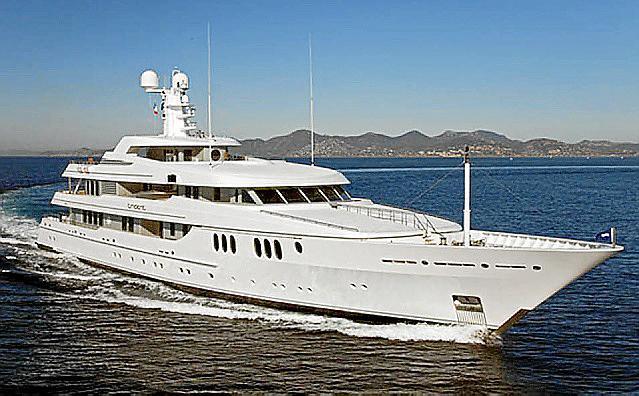It was to be this quality that was to form an altogether different impression. Beaches had been taken over by superyachts. Tuesday's edition reported on yachts that had taken their passengers (they were being hired out at vast cost) to Cabrera. Crew had installed what was to be termed a private "beach club" on an island with protected status.
This wasn't the first time there had been such an "occupation". An Arab sheikh had turned up at Es Carbó. Security were keeping others away. Coll Baix in Alcudia was another location, we were to learn, and on Wednesday we wondered about Russian oligarchs who were commandeering beaches and deploying "goons to keep the riff-raff away". Were they "tooled up"?
Initially, it appeared that any sanction for the "privatising" of the beach in Cabrera might be low - under one thousand euros at most. By Friday, though, the Terraferida group had unearthed legislation that could mean up to 100,000 euros. It was demanding that there be "exemplary punishment". Another group, GOB, was also on the case. In Saturday's paper we reported on its call for improved order and management of the coasts of the Balearics. The Cabrera incident was something that this environmentalist group clearly had in mind.
Order on the beaches
GOB intimated that a lack of order was a consequence of there being so many administrations - police forces, local authorities at different levels - having different responsibilities. This has been shown to be the case at Cala Varques in Manacor, where yet again this summer there have been violations that involve all these various administrations. GOB was highlighting the fact that the public is utterly confused as to who has responsibility for what. The administrations have given the appearance of being equally confused.
Anyway, Manacor town hall took its own action. A report yesterday explained how local police, with National Police, had moved in to fine cars parked illegally and to stop illegal selling on the beach. This illegal selling, of whatever type, knows no bounds in Majorca. From Calvia this week came news of 824 "denuncias" issued by local police in respect of the sale of fruit on municipal beaches - almost half of them in Magalluf.
There was further concern about beaches. People shouldn't be helping themselves to pebbles or sand from the island's beaches and they certainly shouldn't be selling them on eBay. Serious though it was being made out to be, the story on Friday of the regional environment ministry seeking to stop the sale (at 5.90 euros per lot) of pebbles from Sa Calobra's beach did have its amusement factor.
A tragic accident
While tragedy never seems far away, this past week was more tragic than most. The worst road accident in Majorca for almost twenty years claimed the lives of a German family of four. It occurred on Monday by Rancho Grande, which is off the Alcudia-Arta road in Son Serra de Marina. Guardia Civil investigators are still not certain why the accident occurred. Was the driver blinded by the sun, for example? The car had turned straight into the path of an oncoming van along a road which, while traffic moves quickly, is straight and has good visibility. It was an awful accident, made more so by the deaths of two children under the age of ten.


No comments
To be able to write a comment, you have to be registered and logged in
Currently there are no comments.